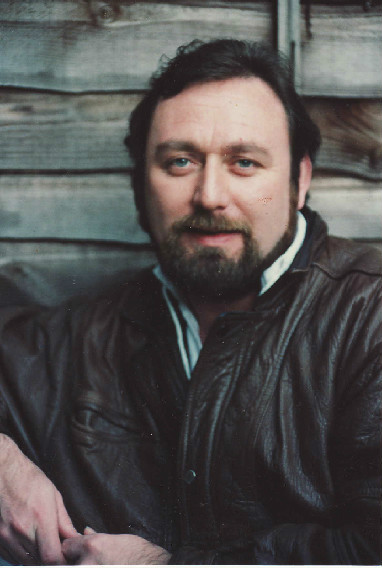1. Could you tell us a little bit about yourself?
I was born in Staffordshire, near Etruria, the place made famous by Josiah Wedgwood, but I was brought up in Sydney, Australia and later in Lancashire, England. I studied astrophysics at Newcastle University, where I also started the student science fiction society. Writing novels has always played a part in my life, and I've tried to see enough of the world enough to be able to write fiction with the eyes of personal experience.
After university, the US oil industry was booming, so I went to Dallas, Texas. Later on I worked on rigs in various parts of the Middle East and the war-torn heart of Africa. I was aboard the Ron Tappmeyer, a rig that blew out in the Persian Gulf, killing 19 men. It was dangerous work, but well-paid, and it took me to places that outsiders rarely see, like the Rub’al Khali of Arabia and hard-to-reach parts of equatorial Africa.
When I left the oilfields, I spent time on more travel, first to East Berlin and Warsaw, then to Moscow and Leningrad. From there I took the Trans-Siberian railway to Japan. In Hong Kong, I worked on a road survey, took tea with the heir of the last king of Upper Burma near Mandalay, and on the path to Everest base camp just happened to run into Sir Edmund Hillary. After traveling around most of India, Sri Lanka and Indonesia, I returned home and took up a job with the BBC. Four years later, I left BBC TV to write. I finally settled in London, but I still like to head off to interesting parts when time allows.
2. Describe your book The Deadly Playground 1914: The Barrington Quintet Volume I in 30 words or less.
The Deadly Playground is volume one of a series that tells the story of the prestigious Barrington family during the Great War. A tale of espionage, romance and power.
3. What was the hardest part of writing your book?
As always, the research. There is a huge amount of material on the First World War and it is difficult to decide which materials you are going to use and which pieces to discard. Then there is the hardest, but most important part of writing a book - the re-writing!
4. What books have had the greatest influence on you?
James Clavell’s Shogun is a peerless work. Classic works remain an ongoing source of pleasure and encouragement. I spend a lot of time reading biographies. As a budding writer, I used not to read other people’s fiction while I was writing because I couldn’t risk influences on my writing style. The habit has stuck.
5. Briefly share with us what you do to market your book?
Not enough! John Wanamaker, a retailer in the US at the turn of the 20th century, once said “"Half the money I spend on advertising is wasted; the trouble is I don't know which half”. I spend time on Twitter, Facebook and LinkedIn. I also post my book on a range of influential sites which support indie writers. I do interviews and I write a blog. My Twitter handle is @novelrob and my blog can be found at http://novelcarter.blogspot.co.uk/. I’ve been collecting photographs from 1914-18 and I am putting those out on Twitter and Pinterest from time to time.
6. How do you spend your time when you are not writing?
I describe myself as a “serial enthusiast”. Everything from growing cacti to electronics. A more lasting passion is astronomy – and of course, travel
7. What are you working on next?
Volume Two of the Barrington Quintet, which will appear in early 2015. I haven’t thought of a title yet, but you’ll be the first to know!
